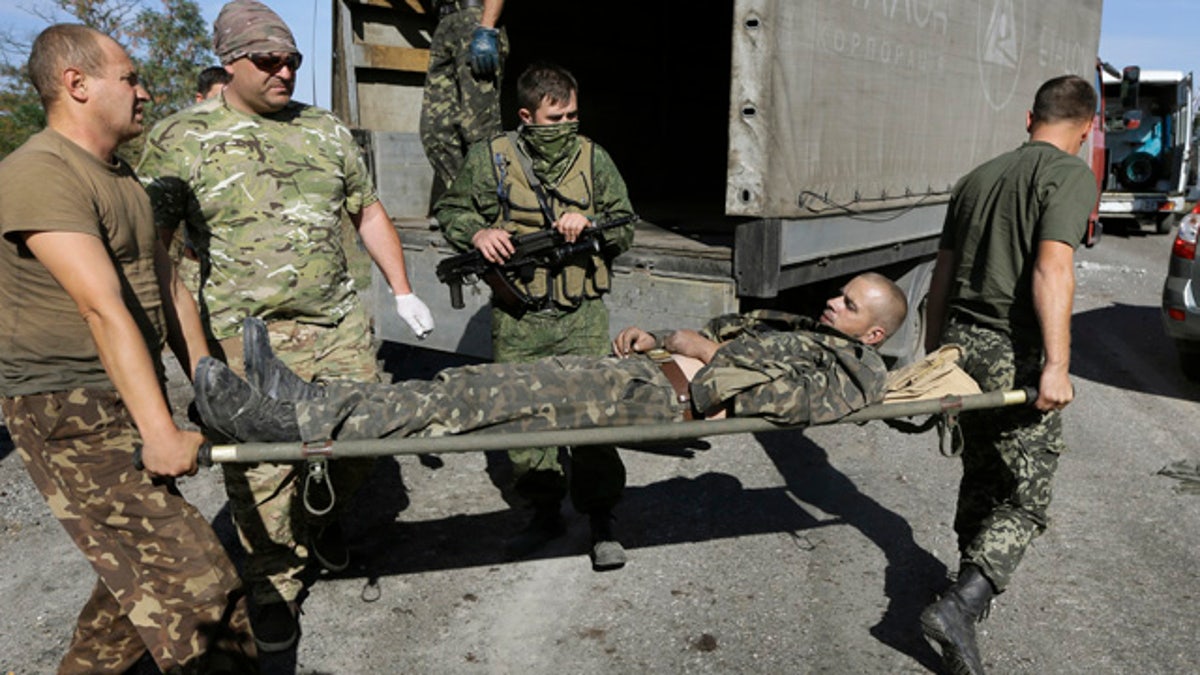
August 30, 2014: Ukrainian army personnel carry an Ukrainian government soldier injured by tank fire to an ambulance in the rebel-held town of Starobesheve. Half an hour later the soldier died. (AP Photo/Sergei Grits)
MARIUPOL, Ukraine – For several weeks last winter, bus driver Ivan Borys ferried people from his hometown in western Ukraine to and from the demonstrations in Kiev in favor of closer ties with the European Union.
Now, the 51-year-old holds a rifle in this southern port city, the newest front line of Ukraine's confrontation with Russia—and wonders where Europe is now.
"They promised to help, but how are they helping?" Mr. Borys said, standing next to a truck that volunteers had armored with metal plates.
He said that Europe's promotion of peace talks and a political solution—rather than throwing its weight behind Ukraine with weapons and other military assistance—has simply encouraged Russian aggression. "Do they want war?" he asked.
Many Ukrainians welcomed U.S. and EU support during the protests against a corrupt, pro-Russia government, when many Western politicians joined them on the main protest square in Kiev. But the West has tread cautiously since then in dealing with the aftermath, which has seen Russia invade and annex Crimea and support a rebellion in the country's east.
